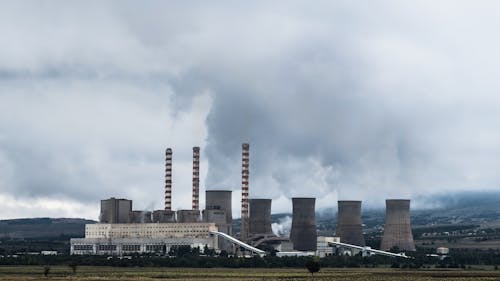U. student, professor discuss warmer winters, effects of climate change in New Jersey

Several locations in New Jersey experienced notably high temperatures during the first week of January this year, according to an article from NJ Advance Media.
Data from the National Oceanic and Atmospheric Administration for January 4 shows that temperatures in Atlantic City, New Jersey reached 70 degrees Fahrenheit. That temperature makes January 4 the warmest of its kind in history for areas in the city, according to the article.
Additional data from the New Jersey Weather Network showed that on the same day, specifically, a majority of New Jersey cities recorded temperatures higher than 60 degrees Fahrenheit. Certain jurisdictions, such as Egg Harbor, experienced highs of 71 degrees Fahrenheit.
A University student and a climate expert spoke about their perceptions of increasing temperatures and compared them to weather conditions they historically experienced living in New Jersey.
Sancharitha Ramji, an Ernest Mario School of Pharmacy sophomore, said that she has observed decreases in snowfall and increases in temperatures in New Jersey over the past few years.
"I think the change in temperatures was mostly gradual, but in the past three or four years, it was very sudden," she said. "I don't think I noticed the change as much when I was younger, but I'm also not sure if that just has to do with age."
David Robinson, the state climatologist of New Jersey and a distinguished professor in the Department of Geography, said that average temperatures in New Jersey during the winter have increased by approximately 8.7 degrees Fahrenheit annually for the past 40 years.
This upward trend in seasonal temperatures is apparent for all seasons and occurs in parts of the Northeast as well, he said. In fact, the Northeast region of the country is warming faster than other regions of the country due to its proximity to the Atlantic Ocean.
From a scientific standpoint, Robinson said that warming in both the ocean and on land poses a threat to local biodiversity by enabling certain invasive species, insects and diseases native to warmer climates to survive in the state.
Along with these risks, variances in temperature also have economic consequences for in-state infrastructure, businesses and utilities, he said. In terms of infrastructure, New Jersey roadways have not received as much damage in this warmer weather.
Businesses that traditionally operate in the winter, such as skiing and similar activities, have dealt with reduced opportunities. Regarding utilities, he said heating bills had not risen as much as they would have in colder temperatures.
Socially, Robinson said people might look at increases in temperature favorably or negatively. Ramji said that while she is aware of the implications for the planet, she personally favors the warmer weather as it makes traveling around campus more enjoyable.
Robinson said that these upwards trends in temperature are generally expected to continue in the coming years. The rate at which it increases, though, is reliant on how prevalent greenhouse gasses are in the future.
"This is a period of time when it is clear globally that human activities are responsible for a large majority of the warming," he said. "Climate models demonstrate that the earth would not be warming if it were not for the human-induced rise in these gasses (carbon dioxide, methane and several others)."
Understanding the role climate change has in various industries is important to coping with, responding to and relieving its ramifications, Robinson said. Comprehension and collaboration can lead to more efficient and effective responses, he said.



